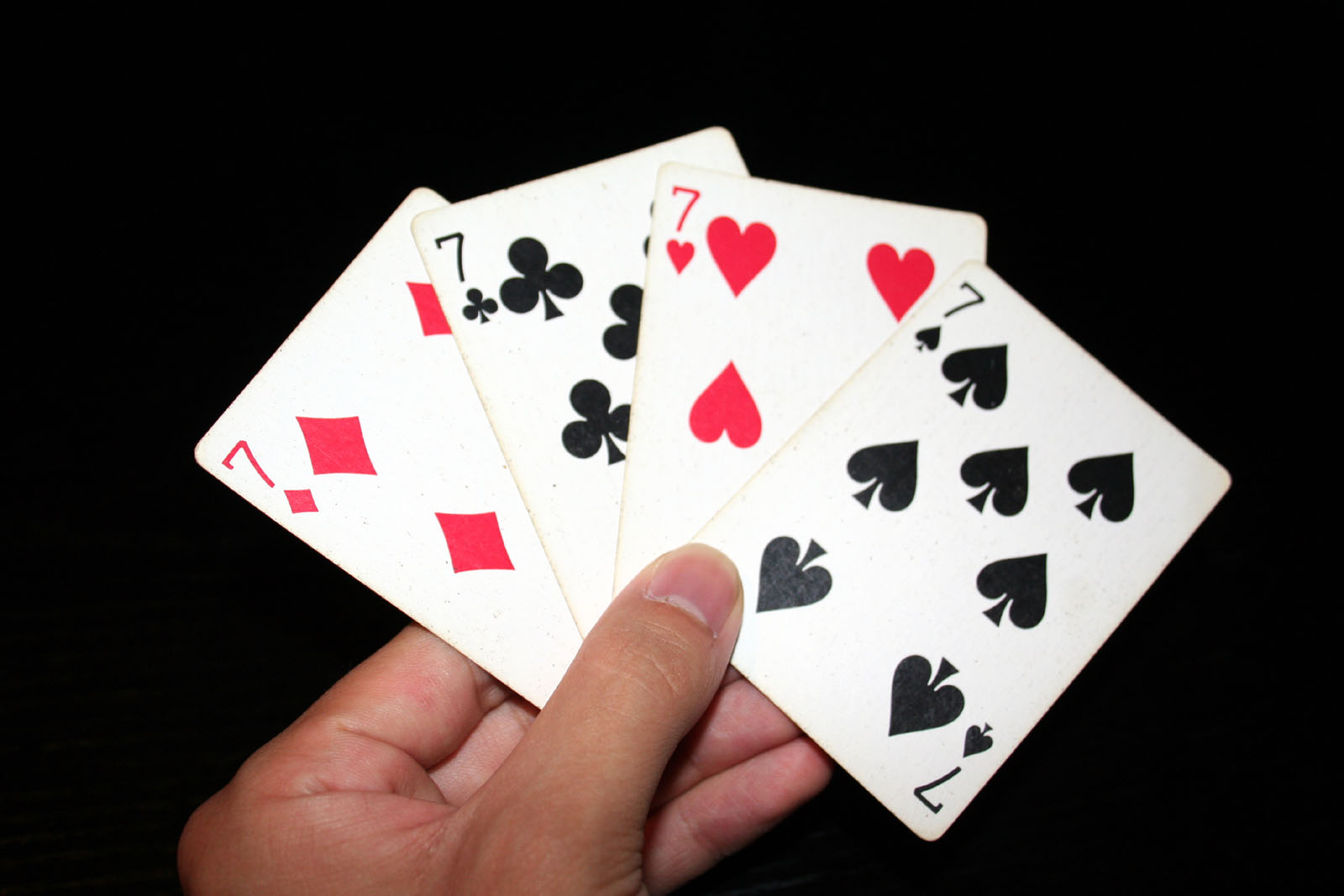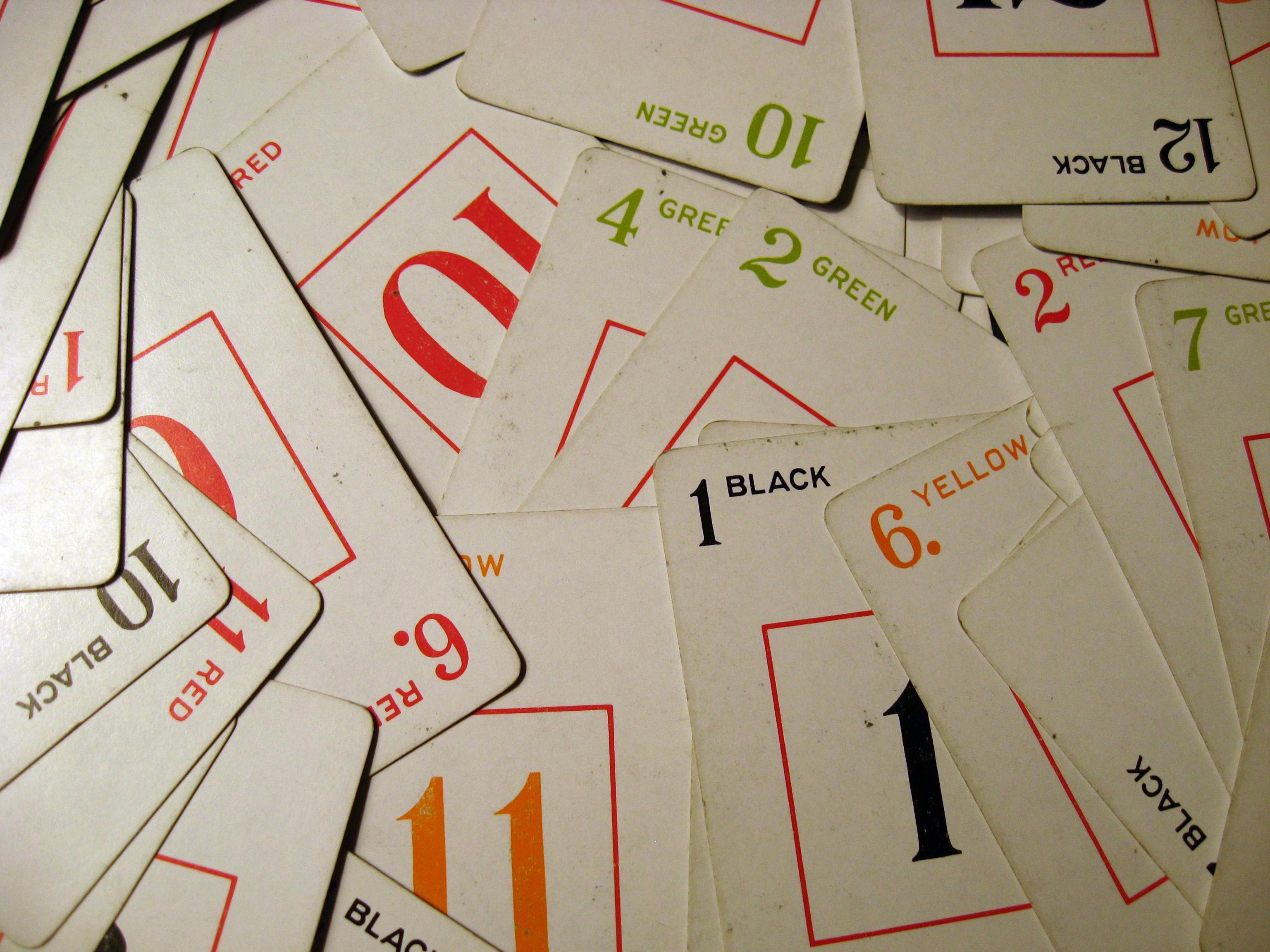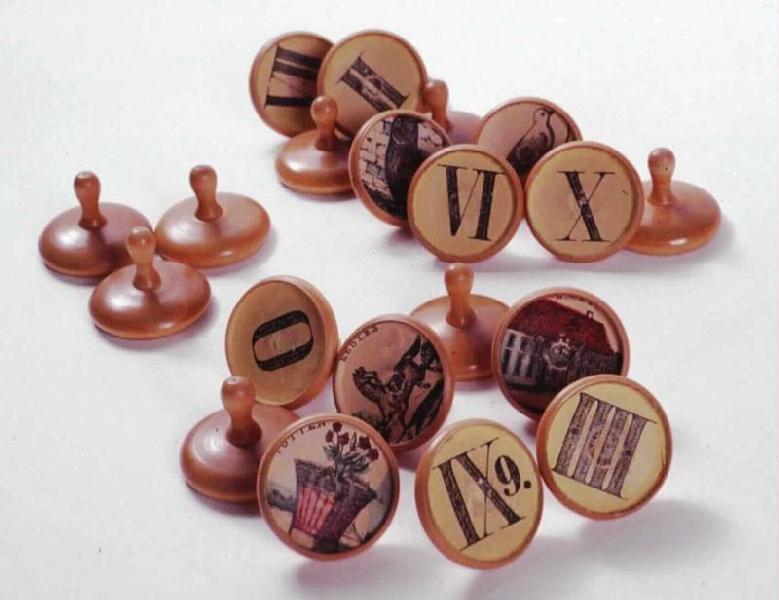|
Dedicated Deck Card Game
A dedicated deck card game is one played with a deck specific to that game, rather than a pack of standard playing cards. Educational packs of cards were being printed by the late eighteenth century, initially designed merely to inform, but later becoming playable games. Modern card games are often sold with non-standard distributions of suits and ranks. Unranked cards By the late eighteenth century, educational packs of cards were being printed without suits or ranks, such as ''The Elements of Astronomy and Geography Explained'', published by John Wallis in 1795. These served as teaching aids rather than being playable games. Charles Hodges' 1828 game ''Astrophilogeon'' was a deck of 60 cards showing 30 constellations and 30 terrestrial maps, with which players could play a game attempting to obtain corresponding pairs. An early 20th century dedicated deck card game was '' Touring'', published in 1906, and inspiring '' Mille Bornes'' in 1954. Modern dedicated deck card games ... [...More Info...] [...Related Items...] OR: [Wikipedia] [Google] [Baidu] |
Playing Card
A playing card is a piece of specially prepared card stock, heavy paper, thin cardboard, plastic-coated paper, cotton-paper blend, or thin plastic that is marked with distinguishing motifs. Often the front (face) and back of each card has a finish to make handling easier. They are most commonly used for playing card games, and are also used in magic tricks, cardistry, card throwing, and card houses; cards may also be collected. Some patterns of Tarot playing card are also used for divination, although bespoke cards for this use are more common. Playing cards are typically palm-sized for convenient handling, and usually are sold together in a set as a deck of cards or pack of cards. The most common type of playing card in the West is the French-suited, standard 52-card pack, of which the most widespread design is the English pattern, followed by the Belgian-Genoese pattern. However, many countries use other, traditional types of playing card, including those that are German ... [...More Info...] [...Related Items...] OR: [Wikipedia] [Google] [Baidu] |
Playing Card Suit
In playing cards, a suit is one of the categories into which the cards of a deck are divided. Most often, each card bears one of several pips (symbols) showing to which suit it belongs; the suit may alternatively or additionally be indicated by the color printed on the card. The rank for each card is determined by the number of pips on it, except on face cards. Ranking indicates which cards within a suit are better, higher or more valuable than others, whereas there is no order between the suits unless defined in the rules of a specific card game. In a single deck, there is exactly one card of any given rank in any given suit. A deck may include special cards that belong to no suit, often called jokers. History Modern Western playing cards are generally divided into two or three general suit-systems. The older Latin suits are subdivided into the Italian and Spanish suit-systems. The younger Germanic suits are subdivided into the German and Swiss suit-systems. The French suits a ... [...More Info...] [...Related Items...] OR: [Wikipedia] [Google] [Baidu] |
Stripped Deck
A stripped deck or short deck (US), short pack or shortened pack (UK), is a set of playing cards reduced in size from a full pack or deck by the removal of a certain card or cards. The removed cards are usually pip cards, but can also be court cards or Tarot cards. Many card games use stripped decks, and stripped decks for popular games are commercially available. History When playing cards first arrived in Europe during the 1370s, they had the same format as the modern standard 52-card deck, consisting of four suits each with ten pip cards and three face cards. During the late 14th and 15th centuries, the Spanish and Portuguese decks dropped the 10s while the German and Swiss packs removed the Aces to create 48-card decks. It is far easier to print 48 cards using two woodblocks than 52 cards. While the removal of the above cards was motivated by manufacturing considerations, later expulsions are the result of trying to speed up card games to make them more exciting. Trappola i ... [...More Info...] [...Related Items...] OR: [Wikipedia] [Google] [Baidu] |
List Of Dedicated Deck Card Games
A ''list'' is any set of items in a row. List or lists may also refer to: People * List (surname) Organizations * List College, an undergraduate division of the Jewish Theological Seminary of America * SC Germania List, German rugby union club Other uses * Angle of list, the leaning to either port or starboard of a ship * List (information), an ordered collection of pieces of information ** List (abstract data type), a method to organize data in computer science * List on Sylt, previously called List, the northernmost village in Germany, on the island of Sylt * ''List'', an alternative term for ''roll'' in flight dynamics * To ''list'' a building, etc., in the UK it means to designate it a listed building that may not be altered without permission * Lists (jousting), the barriers used to designate the tournament area where medieval knights jousted * ''The Book of Lists'', an American series of books with unusual lists See also * The List (other) * Listing (d ... [...More Info...] [...Related Items...] OR: [Wikipedia] [Google] [Baidu] |
Haggis (card Game)
Haggis is a shedding card game similar to Tichu, Zheng Fen, and other East Asian climbing games.January 2011 Issue, ''Spielbox Magazine''. Haggis has received praise for being the first to successfully create a climbing, trick-taking game, designed from the start for two to three players, where most previous games required four players or more. The evenly distributed, face card "bombs" are a notable innovation for the genre, helping even out hand strength enough to make two-person play workable, and enhancing the strategic element of the game. The game's designer, Sean Ross, developed Haggis over a period of several years, with first publication in late 2010 by Indie Boards and Cards. The game was named after haggis partly in a nod to Ross' Scottish heritage, but also because the game brought together the "guts" (scoring and play mechanisms) of several other climbing games. Haggis was a nominee for "Best Card Game" in the 2010 Golden Geek Awards by BoardGameGeek. Rules summary ... [...More Info...] [...Related Items...] OR: [Wikipedia] [Google] [Baidu] |
Mau-Mau (card Game)
Mau-Mau is a card game for 2 to 5 players that is popular in Germany, Austria, South Tyrol, the United States, Brazil, Greece, Czech Republic, Slovakia and the Netherlands. Mau-Mau is a member of the larger Crazy Eights or shedding family, to which the proprietary card game Uno belongs. However Mau-Mau is played with standard French or German-suited playing cards. The game is typically played with a 32-card pack, either a French-suited pack from which the Twos, Threes, Fours, Fives and Sixes have been removed or, especially in Europe, with a 32-card German pack. For more than 5 players, 2 packs of cards may be used. The aim is to be first to get rid of all of one's cards. Most of the time, the winner will have to say something at this point, usually "Mau". If they fail to say this, they do not win and instead must take penalty cards. If a player's last card is a Jack, they must reply differently, usually saying "Mau Mau". Before the start of the game, a player who is not ... [...More Info...] [...Related Items...] OR: [Wikipedia] [Google] [Baidu] |
Cartomancy
Cartomancy is fortune-telling or divination using a deck of cards. Forms of cartomancy appeared soon after playing cards were first introduced into Europe in the 14th century. Huson, Paul (2004). ''Mystical Origins of the Tarot: From Ancient Roots to Modern Usage''. Vermont: Destiny Books. Practitioners of cartomancy are generally known as ''cartomancers'', ''card readers'', or simply ''readers''. Cartomancy using standard playing cards was the most popular form of providing fortune-telling card readings in the 18th, 19th, and 20th centuries. The standard 52-card deck is often augmented with jokers or even with the blank card found in many packaged decks. In France, the 32-card piquet stripped deck is most typically used in cartomantic readings, although the 52 card deck can also be used. (A piquet deck can be a 52-card deck with all of the 2s through the 6s removed. This leaves all of the 7s through the 10s, the face cards, and the aces.) In English-speaking countries, the ... [...More Info...] [...Related Items...] OR: [Wikipedia] [Google] [Baidu] |
Gambling
Gambling (also known as betting or gaming) is the wagering of something of value ("the stakes") on a random event with the intent of winning something else of value, where instances of strategy are discounted. Gambling thus requires three elements to be present: consideration (an amount wagered), risk (chance), and a prize. The outcome of the wager is often immediate, such as a single roll of dice, a spin of a roulette wheel, or a horse crossing the finish line, but longer time frames are also common, allowing wagers on the outcome of a future sports contest or even an entire sports season. The term "gaming" in this context typically refers to instances in which the activity has been specifically permitted by law. The two words are not mutually exclusive; ''i.e.'', a "gaming" company offers (legal) "gambling" activities to the public and may be regulated by one of many gaming control boards, for example, the Nevada Gaming Control Board. However, this distinction is not u ... [...More Info...] [...Related Items...] OR: [Wikipedia] [Google] [Baidu] |
Mennonite
Mennonites are groups of Anabaptist Christian church communities of denominations. The name is derived from the founder of the movement, Menno Simons (1496–1561) of Friesland. Through his writings about Reformed Christianity during the Radical Reformation, Simons articulated and formalized the teachings of earlier Swiss founders, with the early teachings of the Mennonites founded on the belief in both the mission and ministry of Jesus, which the original Anabaptist followers held with great conviction, despite persecution by various Roman Catholic and Mainline Protestant states. Formal Mennonite beliefs were codified in the Dordrecht Confession of Faith in 1632, which affirmed "the baptism of believers only, the washing of the feet as a symbol of servanthood, church discipline, the shunning of the excommunicated, the non-swearing of oaths, marriage within the same church, strict pacifistic physical nonresistance, anti-Catholicism and in general, more emphasis on "true Chris ... [...More Info...] [...Related Items...] OR: [Wikipedia] [Google] [Baidu] |
Rook (card Game)
Rook is a trick-taking game, usually played with a specialized deck of cards. Sometimes referred to as Christian cards or missionary cards, Rook playing cards were introduced by Parker Brothers in 1906 to provide an alternative to standard playing cards for those in the Puritan tradition, and those in Mennonite culture who considered the face cards in a regular deck inappropriate because of their association with gambling and cartomancy. Rook playing cards George S. Parker and his wife Grace sought to create a deck of cards that could be marketed to people with religious objections to the standard deck. To accomplish this, George and Grace recast the standard deck of playing cards. They replaced the Ace with a "1" and the jack, queen, and king with "11", "12", and "13" cards, and added a "14" card as well. The hearts, spades, clubs, and diamonds were replaced with "suits" of colors: red, yellow, green, and black. With this new fifty-six-card deck, whist and most other common ... [...More Info...] [...Related Items...] OR: [Wikipedia] [Google] [Baidu] |
Gnav
Gnav is a traditional game that is played with either cards or wooden pieces. Related games are Gnaio, Cuccù, Hexenspiel or Vogelspiel, Kille (also called Cambio, Campio, Camphio, Camfio or Kamfio), Coucou and Ranter Go Round. The game can be played by 20 or more players, and a minimum of two. History of the game The earliest reference to the game dates to 1490 France where it was known by the name of Mécontent (Malcontent) and was played with a standard 52-card deck. Such a game is still played today in France as Coucou ("cuckoo") and also in English speaking countries as Cuckoo or Ranter-Go-Round. The earliest reference of Malcontento in Italy dates from 1547 (“Capriccio in laude del Malcontento” by Luigi Tansillo of Naples). It was in the early 18th century that the first dedicated decks for Cuccu (Cuccù, Cucco, Cucu’ or Stu) appeared which consisted of 38 cards. The oldest known written regulation dates back to 1717 by the Al Mondo company. It was include ... [...More Info...] [...Related Items...] OR: [Wikipedia] [Google] [Baidu] |
Joker (card)
The Joker is a playing card found in most modern French-suited card decks, as an addition to the standard four suits (Clubs, Diamonds, Hearts, and Spades). From the second half of the 20th century, they have also been found in Spanish- and Italian-suited decks, excluding stripped decks. The Joker originated in the United States during the Civil War, and was created as a trump card for the game of Euchre. It has since been adopted into many other card games, where it often acts as a wild card, but may have other functions such as the top trump, a skip card (forcing another player to miss a turn), the lowest-ranking card, the highest-value card or a card of a different value from the rest of the pack (see e.g. Zwickern which has 6 Jokers with this function). By contrast, a wild card is any card that may be used to represent another card or cards; it need not be a Joker. Origin The game of Euchre is credited with the introduction of the Joker into card games. However, Euchre bega ... [...More Info...] [...Related Items...] OR: [Wikipedia] [Google] [Baidu] |








